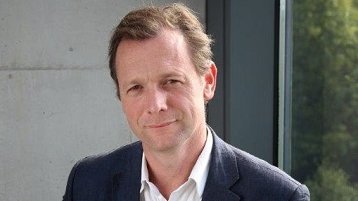Around the world in 16 fellows: Prof. Martin Mullins

This year and next, sixteen researchers from thirteen countries will be conducting their research and teaching at TH Köln as International Fellows. One of them is Prof. Martin Mullins. In this interview, he discusses the differences between TH Köln and his home university, the University of Limerick, and what he hopes TH Köln can achieve.
Name: Prof. Martin Mullins
Home universitiy: University of Limerick, Ireland
Hosting faculty at TH Köln: Faculty of Business, Economics and Law
Fellowship name: Adoption of Artificial Intelligence in the European Insurance Sector
Duration of stay: 1 April – 31 August 2025, 2 December 2025 – 2 January 2026
I was interested in the International Fellowship because...
I wanted to deepen existing relationships on the research front.
Specifically, during the fellowship I plan to...
work with colleagues in TH Köln on publishing papers and completing doctoral work.
During my time in Germany, I would like to find out...
how to better leverage our relationships – and improve contacts between my home University (University of Limerick) and TH Köln.
I think international exchange is...
a great idea – and offers a lot of benefits to both institutions.
Something that is different at my home university than at TH Köln is...
the focus on professional formation.
What I take back to my home university is...
the warmth of colleagues here in Cologne – and the idea of playing table tennis together.
What I like about TH Köln is...
the people – especially my sponsor Professor Dr. Völler.
What I really want to see in Cologne is...
a successful transition to a more research focused institution – without any loss of identity and the great values you possess.
About PLan_CV
The International Fellows program is part of the project PLan_CV („Professur-Laufbahn an Hochschulen für angewandte Wissenschaften neu denken: Collaboration und Vernetzung“). Its goal: Finding excellent candidates for professorial careers at TH Köln and achieving greater permeability between the academic world and the business sector. The project’s budget of 12.4 million Euros is funded through the Federal Ministry of Research, Technology and Space program “FH-Personal” (staff for universities of applied sciences).
November 2025

